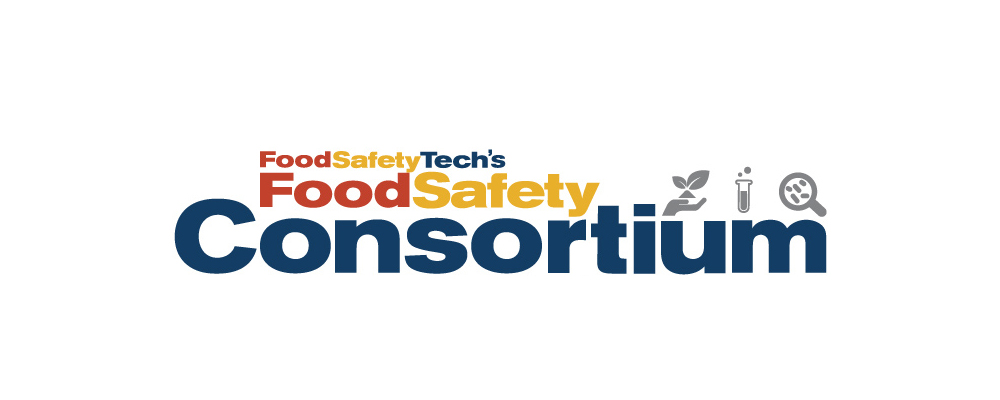Creating a company culture that embraces food safety is paramount to protecting your business and end users. But, developing a strong food safety culture takes time, effort and a buy-in from leadership.
We spoke with Vanessa Coffman, Ph.D., director of the Alliance to STOP Foodborne Illness, to discuss what it takes to create a company culture committed to food safety and what is holding companies and employees back from speaking up and taking action when safety concerns are identified.
Food Safety Tech (FST): How do companies get started in implementing a strong food safety culture?
Dr. Coffman: I think it’s really important to remember that every company in the food space already has a food safety culture. They may just not know it. So, a good first step is to assess your current food safety culture. What’s going right? What’s going wrong? From there, outline where you would like to go.
FST: How do you assess your current food safety culture?
Dr. Coffman: Talking with your employees and asking questions is a good start. There are some questionnaires available online to help you assess your current culture. It’s hard, though, because a lot of them are not scientifically validated, largely because food safety culture is amorphous and it’s also new.
We have a number of resources available on our website, including a Food Safety Culture Toolkit for businesses.
FST: How do company leaders motivate employees to play an active role in ensuring safe food processing and handling?
Dr. Coffman: That is really, really important. You can incentivize people through a rewards and recognition program, which is what a lot of our Alliance member-companies are doing.
I also think that getting into the heart and not just the mind of the employee is important. We have a lot of video resources and stories from foodborne illness survivors and people who have lost loved ones to foodborne illness. These are good motivators to help your team understand what can happen and how important every single person’s role is in the the production of safe food.
FST: How are companies incentivizing their employees to embrace food safety practices?
Dr. Coffman: It can be as simple as recognizing an employee of the month—a food safety culture employee of the month—and having a parking spot dedicated to that person or putting their name in the company newsletter.
Sometimes those big outward shows of recognition aren’t the best for every employee, and maybe somebody would rather get a little monetary bonus. Some businesses have taken employees or teams that have done really well out to lunch with the executives or someone who is well respected in the company. Getting an hour off from work may be a really great reward.
There are a lot of example of ways you can incentivize folks to do the right thing, but ultimately you want a culture of people wanting to do the right thing. That’s the most important aspect of a good food safety culture. You’re not doing it because you’re going to win a prize, but because it’s the right thing to do.
FST: Who, ultimately, is responsible for spearheading and developing a company’s food safety culture?
Dr. Coffman: That’s a really complicated question. Everybody needs to be a part of it and everybody needs to buy in to building a positive food safety culture at a company. That includes frontline workers, maintenance workers and the top executives.
We have been doing a webinar series in partnership with the FDA, and we have gotten a lot of questions about who should be leading these efforts. While it is the front-line workers that have the ability to stop the line, note a problem or report a safety issue, if you do not have buy in from your executives, there is no motivation for the people on the front line to do the right thing. So, getting the company leaders—the C-suite and the middle management people—involved is critical.
FST: Do you have any tips or recommendations on how to speak to the people in the C-suite to help them understand the importance of food safety?
Dr. Coffman: A lot of times people who are not involved in food safety day-to-day are incentivized by different things or see things a little bit differently. Some of things we have found that people who are in the C-suite respond to or are concerned with include the cost of a recall, the cost of getting sued and the cost of brand damage. Those things are really, really important for business leaders to understand. But, as with other employees, you also need reach their hearts.
Join us at the Food Safety Consortium in Parsippany, NJ, October 19-21 and take part in our panel discussion, “Communicating to the C-Suite.”
Everybody has a family, everybody has friends, everybody has people they love and they would never want to see those people get hurt by something that they fed them or by something that their company created. So, really tapping into the hearts is important in addition to presenting those cold, hard numbers, which you do sometimes need.
FST: What prevents employees from being proactive about food safety or raising safety concerns?
Dr. Coffman: Termination. Getting in trouble. A lot of the companies within the Alliance have said that every single employee in their organization is allowed to stop the line. Their employees know that you will never get in trouble for stopping something if you see a problem. Unfortunately, that is not as commonplace as it should be. People who are whistleblowers get in trouble. People who bring up problems to their bosses get in trouble. And when we’re talking about food safety, if you let things slip you are putting people in danger
FST: What is the biggest misconception about food safety culture?
Dr. Coffman: That this is a linear task. That this is something that you can just do and then it’s fixed and in place. It takes a lot of planning, a lot of energy and a lot of time.
Food safety culture is not something you have to do to meet an auditing requirement. The components are not going to be black and white, yes or no. This might seem frustrating at first to those who are used to following detailed checklists and written procedures, but once a positive, mature food safety culture is established, problem areas on your checklist will likely diminish.





